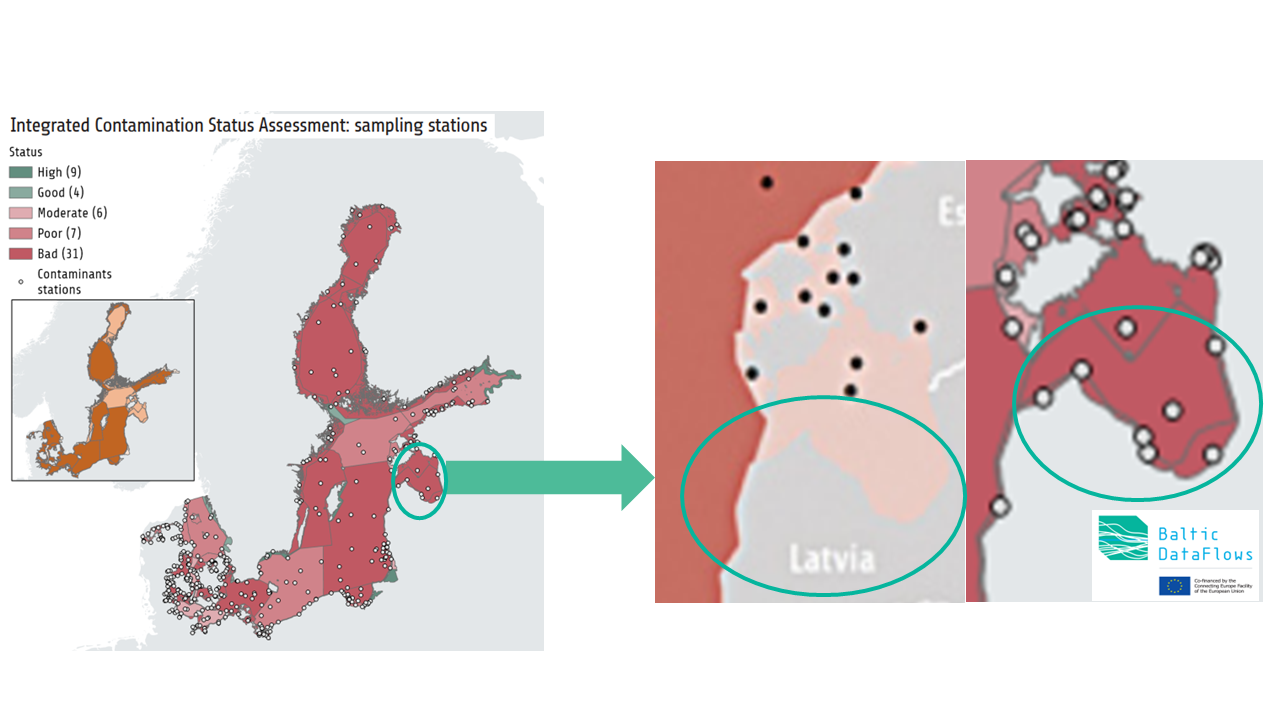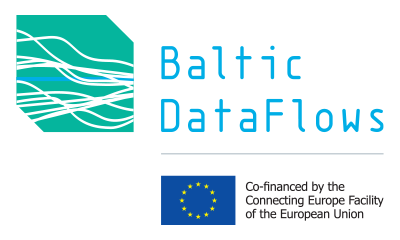The LatMare marine monitoring database, developed by the Latvian Institute of Aquatic Ecology (LHEI) with support from the Baltic Data Flows project, has had clear benefits on marine monitoring work at both national and regional levels. The new database will support national process, for example the responsibilities under the EU Marine Strategy Framework Directive (MSFD), and improve the regional overview carried out under the HELCOM Regional Sea Commission.
HELCOM holistic assessments (HOLAS), carried out five years, evaluate the ecosystem health of the Baltic Sea through regional cooperation. Compilation of data and application of regionally agreed methodologies are a vital step in this process. The thematic assessment of hazardous substances, marine litter, underwater noise and non-indigenous species 2016-2021 is based on long term data trends and an evaluation against threshold values for 14 different substances or substance groups.

In open sea sub-basins (for example the open sea area of the Gulf of Riga) these regional evaluations are based on data from all relevant countries, thus harmonised data are critical to solid assessments. The work under Baltic Data Flows project has significantly improved data availability in the Gulf of Riga between the previous (HOLAS II) and current assessment periods (HOLAS 3) (see Figure 1 inserts – stations now included shown as white points), resulting in stronger, more reliable data, increasing the confidence in the assessment.
LHEI are a partner of the BDF project with targeted engagement in Activity 1 (Increase of capacity at national data host institutes), Activity 5 (Further development of data processing and software used in hazardous substances assessment), and Activity 6 (Development of data processing and software to be used in biodiversity assessment).
